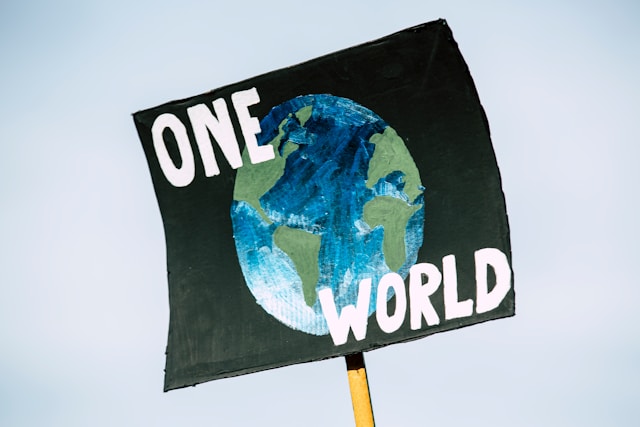Why engaging faith-based organisations at this year’s climate negotiations is important

Kristian Noll of the LSE Faith Centre explains why any effort to finance and support a just climate transition without consideration for religion will almost certainly fail.
This week, tens of thousands of delegates from across the globe have descended on Baku, Azerbaijan for the UN climate change conference, COP29. Held against the backdrop of a climate crisis worsening in its severity and scope, the conference will be expected to deliver significant progress towards slowing the progression of climate change and adapting to its already devastating consequences.
The pillars of this year’s conference are ‘enhancing ambition’ and ‘enabling action’ in global climate policy. Practically, negotiators will prioritise establishing a new collective quantified goal (NCQG) for international climate finance, operationalising a ‘Loss and Damage’ fund to secure sufficient financial assistance for developing countries, and strengthening national climate commitments, while conducting negotiations in a transparent and inclusive manner.
In their pursuit of these goals, negotiators and actors from civil society must not neglect a major yet often overlooked coalition present at the negotiations: faith-based organisations.
Religion must be considered – for four reasons
For the second year in a row, the COP will feature a Faith Pavilion, where nearly 100 faith-based organisations (FBOs) will convene and bring moral and ethical perspectives to the heart of the climate negotiations. Engaging in these conversations and with these organisations will be more important than ever at COP29, as any effort to finance and support a just climate transition without consideration for religion will almost certainly fail. Here are four reasons why.
First, approximately 84% of the world’s population is affiliated to a religious and/or spiritual community, and this is only expected to grow. Moreover, data shows that the countries which will face the harshest impacts of climate change are also the most religious. As exemplified in discussions on climate intersectionality, it is clear that to address the global reality of climate change, we will need to engage with and across plurality and centre the voices of those most affected by climate change. If we accept this imperative, then religion will need to play a significant role in these negotiations.
Second, faith-based investment bodies are one of the largest investment blocs on the planet, managing around 10% of global financial assets. Not only are they therefore able to allocate tremendous financial resources to benefit climate mitigation and adaptation, but they have also proved responsive to calls for more climate-friendly investment practices. As of this year, 35% of global fossil fuel divestments have come from faith-based organisations, including the Church of England, the Church of Sweden and the Vatican, among others. Naturally, galvanising sufficient funding for an equitable transition cannot rely solely on religious bodies; however, ignoring such a significant and largely responsive investment bloc in these negotiations would be counterproductive. In addition to their financial capital, FBOs own 8% of habitable land on the planet (around 510 million hectares), 5% of all commercial forests, and millions of buildings globally – all vital pieces in sectors that contribute significantly to climate change.
Third, religious institutions have tremendous reach, influence and potential for inspiring intergenerational and interdisciplinary collaboration on the climate. FBOs have founded or run 50% of schools worldwide and 14% of community development corporations, and are on the frontline of delivering healthcare services worldwide – up to 40% in Sub-Saharan Africa, for instance. Crafting an integrated response to the climate crisis will require strong partnerships across sectors, and this is a divide FBOs are in position to navigate.
Finally, faith brings the abstract language of climate justice into our present realities. Climate change is no longer simply a practical challenge. On the contrary, addressing its consequences is, in the words of both the COP29 Presidency and the UN Secretary General, a ‘moral imperative’. Our research at the LSE Religion and Global Society unit has found that the abstract concepts inherent to an inclusive policymaking process – take stewardship, morality and justice as examples – all manifest quite tangibly in religious traditions, compel action and inspire hope in ways than social, legal and political mandates (and even scientific realities) fail to do.
Fundamentally, while climate change might be a scientific phenomenon, addressing it is an exercise of human geography. The World Meteorological Organization’s Secretary-General Celeste Saulo recently said we must “embrace diverse knowledge, experiences and perspectives”, to address challenges including climate change and sustainable development. If COP29 is to be successful in answering this call, prioritising religion might be one crucial component of doing so.
Kristian Noll is the Project Officer for Global Religious Pluralities at LSE Religion and Global Society. The views in this commentary are those of the author and do not necessarily represent those of the Grantham Research Institute.

